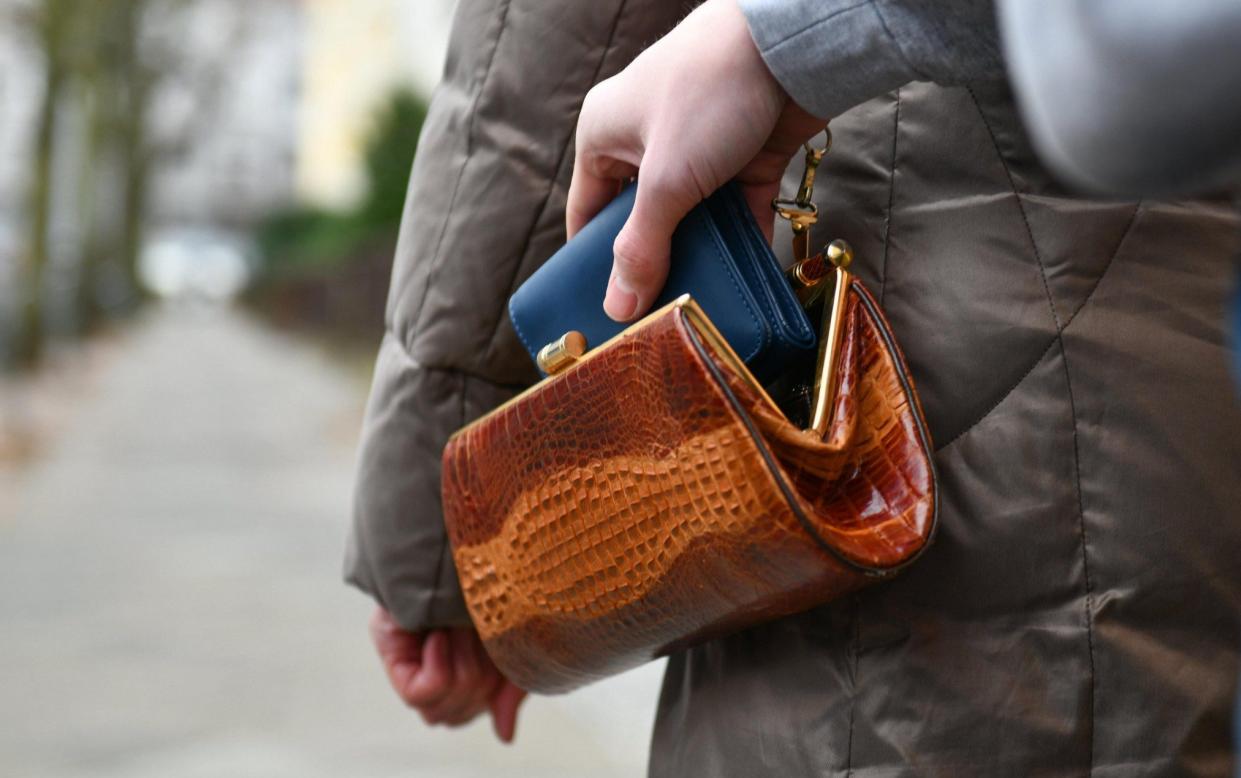How to outsmart pickpockets while on holiday (according to a professional pickpocket)

Every year, thousands of British holidaymakers are pickpocketed while on holiday – but there are ways to protect yourself, points out a professional pickpocket.
The issue of tourists being targeted by thieves surfaces regularly. This week it emerged that visitors to Rome are being targeted in a street crime wave, with muggings and pickpocketing doubling in a year. Restaurateurs and bar owners in the Eternal City say their clients are being besieged by gangs of thieves and bag snatchers.
They fear robberies will increase as more visitors arrive next year for the Vatican Jubilee, a rare event in the Catholic church which will bring pilgrims to the Italian capital.
According to a study carried out by the travel insurance comparison site Quotezone, Italy has the highest number of pickpocketing reports in online travel reviews (463 mentions for every one million reviews), with the Colosseum, Trevi Fountain and Pantheon in Rome among the hotspots. France came second in the study (283 per million) and the Netherlands came third (143 mentions per million).
Speaking to The Telegraph, professional theatrical pickpocket Lee Thompson – who is a member of the Magic Circle – explains the tricks of the trade, how to detect a pickpocket, and the easiest ways to protect your belongings when you’re abroad.
Who is a prime target for a pickpocket?
Pickpockets target high-profile individuals, according to Thompson, but he says that everyone is a potential victim. “Pickpockets target people who seem distracted, and they also target those who seem vulnerable,” he says. “They do this regardless of status.” Thompson adds that pickpockets typically “strike when attention wavers, or when someone leaves their valuables unguarded”.

He also warns that wearing expensive jewellery and watches can attract unwanted attention, so tourists should avoid wearing designer accessories that may make them a target. “Instead, opt for modest attire that doesn’t scream ‘tourist’. Avoid those designer shopping bags, too,” he advises.
Where do pickpockets operate?
Pickpockets primarily operate in busy tourist areas, like markets, and in crowded transit hubs, and may work alone or in groups. In the latter case, pickpocketing teams are adept at creating distractions. “This could be anything from a game to a loud shout, all designed to avert your attention while an unseen accomplice steals your valuables,” warns the Metropolitan Police. “So do try not to be easily distracted.”
Pickpockets also operate in shops, where people are more likely to be standing still, making them an easier target: “it’s easier for them to brush past people, take items and blend into the crowd,” the Met adds.
What are the common tricks used by pickpockets?
“Beware of friendly strangers,” says Thompson. “They may cause sudden commotions. These will divert your attention, so stay focused and assertive. This is especially important in crowded areas. That’s where pickpockets are most active.”
The Metropolitan Police warns of so-called hugger muggers: “They know all the tricks and are extremely light-fingered, with most of their thefts only taking a second or two. One of their tactics is ‘hugger mugging’ where a thief will appear to be over-friendly for no particular reason and hug you while pickpocketing you.”
What items are vulnerable to theft?
Pickpockets thrive on access, according to Thompson. “Items like phones stick out from pockets, while bags left on chairs present an opportunity – wallets, phones, passports: no item is off limits.
“Leave valuables in your hotel safe,” he adds. “Also leave non-essential items there. Carrying bulky gadgets and too much cash makes you more vulnerable. Minimise your load to essential items and keep them close at hand.”
Thompson suggests wearing a money belt, for extra protection, or a front-pocket wallet. “They are not the most fashionable accessories,” he notes, “but they offer a discreet and effective way to safeguard your cash and cards.”
What about digital pickpocketing?
In the digital age, pickpocketing has evolved beyond the realm of sleight of hand, points out Thompson. “Criminals use modern technology to steal personal information and funds remotely. Thieves can scan credit cards and passports from a distance, using devices like card skimmers and RFID [radio frequency identification] readers. They can do this without the victim even realising.” To guard against this, Thompson suggests purchasing an RFID wallet – which can block these signals – or special card sleeves which create a barrier against electronic scanning.
What should I do if I suspect I am being targeted?
“Maintaining vigilance is key,” says Thompson. “If you sense someone following you, change direction. Or go to a nearby building for safety. A pickpocket thrives on anonymity. They will likely lose interest if they suspect you’re onto them.”
What should you do if you are targeted?
Thompson recommends that tourists trust their instincts. “Seek refuge in a shop or crowded, well-lit area; report suspicious activity to authorities right away; and take proactive steps to safeguard belongings,” he says.
He adds that you should always place your personal safety above the safeguarding of your belongings, and to try to defuse confrontations when possible. “Pickpockets generally aim to avoid confrontation,” he says, but warns that “things can escalate if they feel threatened”.

This article was first published in April 2024 and has been revised and updated.


